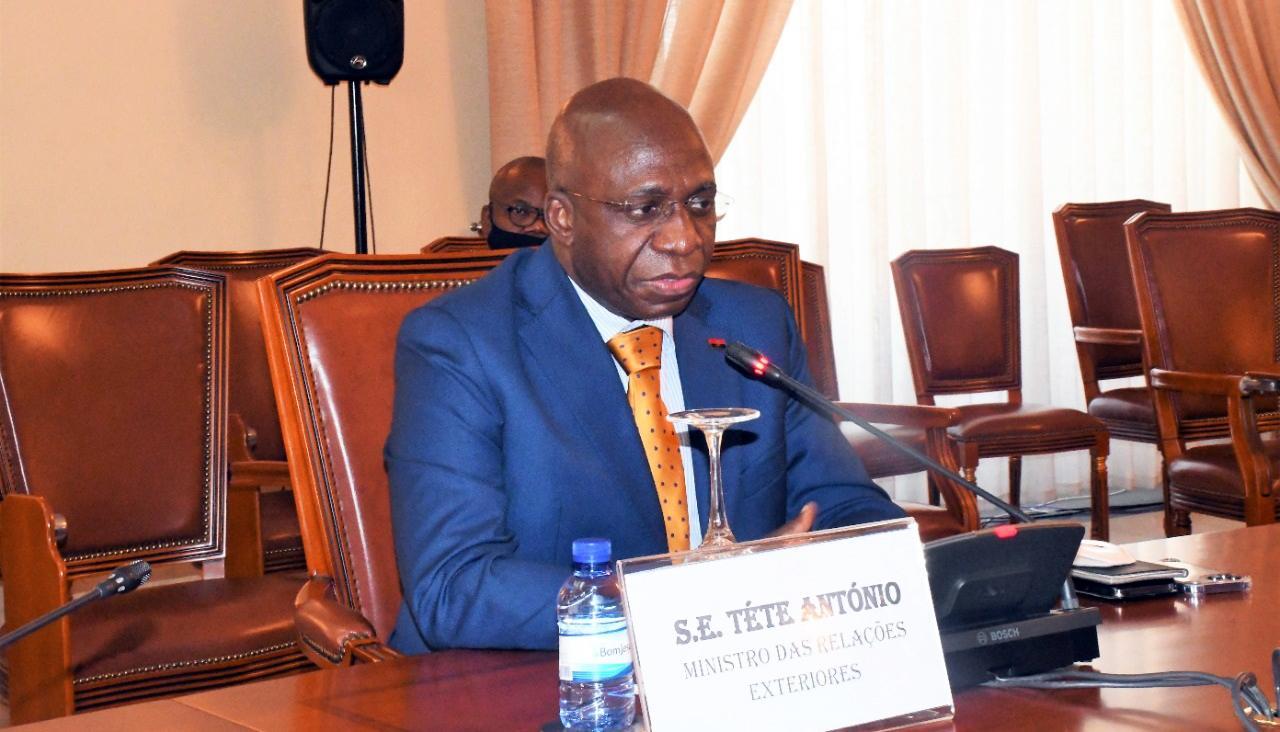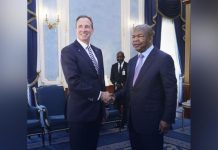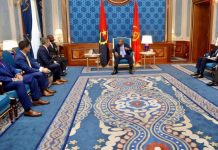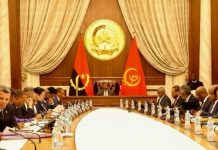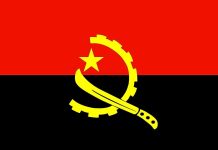Africa-Press – Angola. The Angolan Minister of Foreign Affairs, Téte António, declared Thursday, in Kinshasa, that Angola’s presidency of the International Conference of the Great Lakes Region (CIRGL) was marked by a “complex, volatile and permeated by uncertainty” regional situation.
Téte António was speaking during the handover of the symbols and legal instruments of the CIRGL, namely the organization’s flag and protocol, which marked the end of his mandate as head of the CIRGL Inter-Ministerial Committee (RIMC).
The rotating presidency of the Committee was now assumed by Floribert Anzuluni Isiloketshi, Minister of Regional Integration of the Democratic Republic of Congo (DRC), as part of the 19th Ordinary Session of the body held on Thursday, in Kinshasa.
In his speech as outgoing Chair, Minister Téte António said it was essential to remember that, during Angola’s presidency, the peace and security situation in the Great Lakes region proved to be complex, volatile and permeated with uncertainty.
According to the official, all this despite the political determination of the CIRGL Member States to promote pacification and development in the region, as well as the efforts and support of the international community.
Numerous challenges arose in the field of peace and security, statutory contributions, as well as socio-economic and humanitarian issues, he said.
For Téte António, these factors required the adoption of a more cautious presidency in certain circumstances, while in others, a proactive stance proved essential.
This Saturday, the 15th, the Congolese capital hosts the IX Ordinary Summit of Heads of State and Government of the CIRGL, which will sanction the end of Angola’s mandate at the head of the regional organization.
During the meeting taking place under the motto “Consolidating peace and security in the Great Lakes countries”, the DRC will assume the rotating presidency for a two-year term.
The CIRGL is an intergovernmental organization created based on the recognition of the regional dimension of political instability and conflicts experienced in the region’s Member States and which require a concerted effort to promote sustainable peace and development.
It currently consists of 12 countries (Angola, Burundi, Central African Republic, Congo, DRC, Kenya, Uganda, Rwanda, South Sudan, Sudan, Tanzania and Zambia) that meet at a summit, at the level of heads of State and Government, every two years.
For More News And Analysis About Angola Follow Africa-Press

